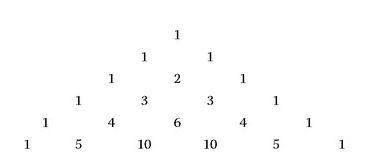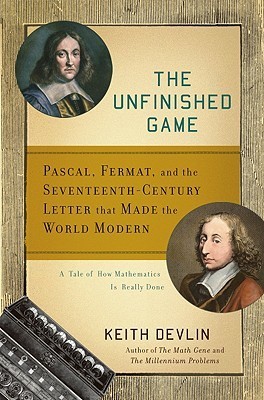
Devlin, The Unfinished Game
Before the mid-seventeenth century, scholars generally agreed that it was impossible to predict something by calculating mathematical outcomes. One simply could not put a numerical value on the likelihood that a particular event would occur. Even the outcome of something as simple as a dice roll or the likelihood of showers instead of sunshine was thought to lie in the realm of pure, unknowable chance. The issue remained intractable until Blaise Pascal wrote to Pierre de Fermat in 1654, outlining a solution to the “unfinished game” problem: how do you divide the pot when players are forced to end a game of dice before someone has won? The idea turned out to be far more seminal than Pascal realized. From it, the two men developed the method known today as probability theory. In The Unfinished Game, mathematician and NPR commentator Keith Devlin tells the story of this correspondence and its remarkable impact on the modern world: from insurance rates, to housing and job markets, to the safety of cars and planes, calculating probabilities allowed people, for the first time, to think rationally about how future events might unfold.
Download
Devlin_The Unfinished Game.pdf
Devlin_The Unfinished Game.txt
Devlin_The Unfinished Game.html
Devlin_The Unfinished Game.jpg
Devlin_The Unfinished Game.zip



